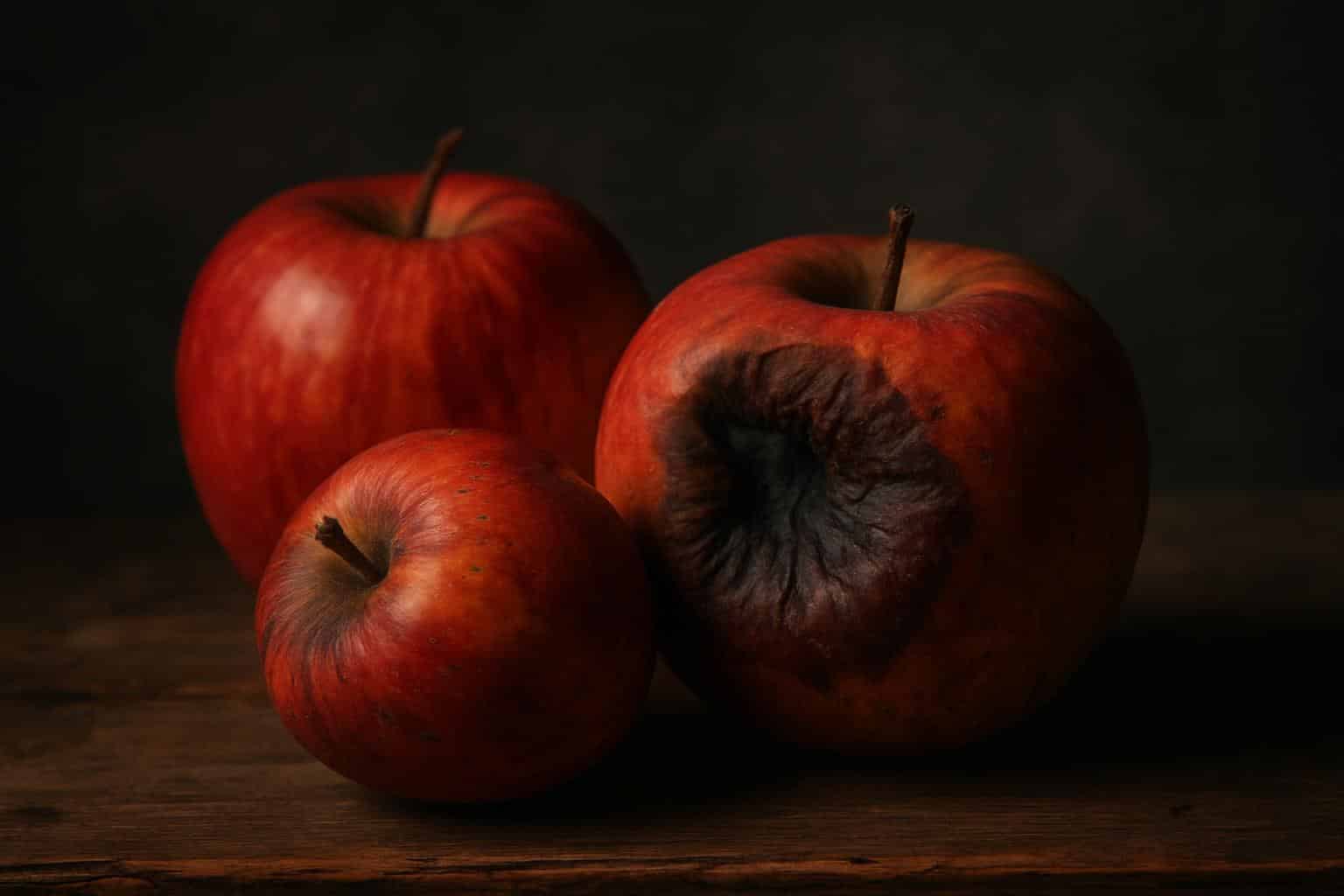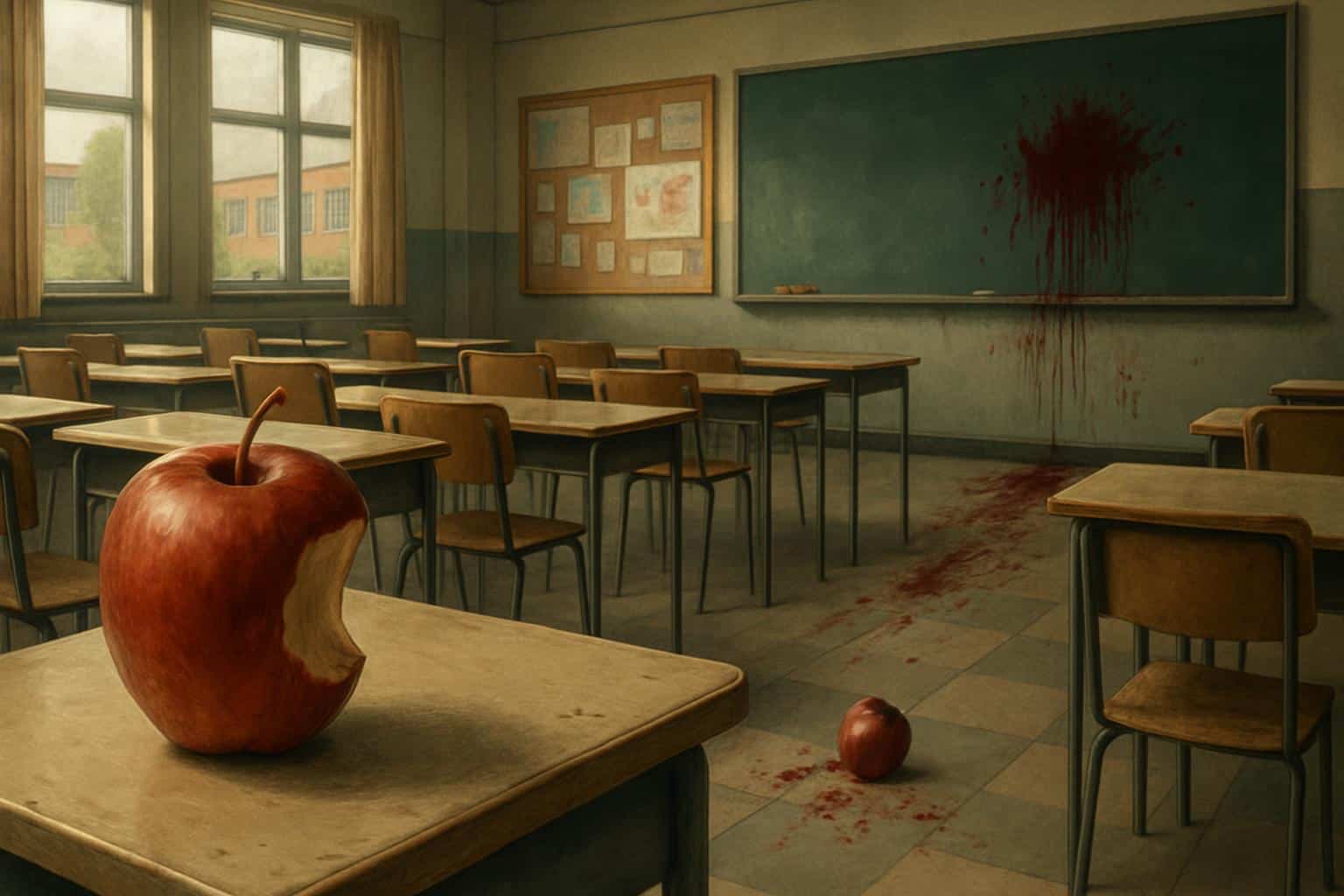Saoirse Ronan channels moral panic into pinpoint comedy in Bad Apples, a spiky classroom satire that dares to ponder what becomes of a good teacher who makes one catastrophically awful decision. The director Jonatan Etzler keeps material that easily could have run off the rails knife-like instead: It’s a character study about weariness, ethics and the fuzzy borderline between order and control.
Based on Rasmus Andersson’s novel De Oönskade, the screenplay by Jess O’Kane follows Maria, a committed primary school teacher in Somerset whose idealism has been eroded away by underfunding and paperwork and increasing behavioural crises. When her most volatile student crosses a line, she does the unthinkable — and then has to live with it. The result is a sharp, unnervingly funny spiral that also serves as a vivid portrait of a system on edge.

Saoirse Ronan Anchors A Razor-Edged Comedy
Maria, Ronan’s character, in other words, is not a caricature of the “saintly teacher” or the “secret tyrant.” Painfully believable, she is competent, lonely, and sure that she’s doing the right thing even when she knows she isn’t. She softens the film’s most outrageous turns with rigorously contained silence — micro-movements of posture, a half-strangled “I’m sorry,” the pep talk she gives her reflection before school — that allow us to sit inside Maria’s increasing spiral toward nonsense.
Her comic timing is surgical. While Maria weaves expansive cover stories, Googles search terms designed to train aggressive pets and talks herself into increasingly intricate fixes, Ronan nails the deadpan beats without losing the character’s terror. It’s not the humour but the moralistic air that doesn’t let Maria off: The humour exposes the creeping rationalisations that confuse her — and those, a bit uncomfortably, are ours.
A School System at the Brink of Breaking Point
What gives Bad Apples its bite is the context in which it situates Maria’s crisis — not merely within her and Danny’s claustrophobic personal pressure cooker, but in a wider structural squeeze. The troublemaker at the story’s core, Danny (a breakout turn from Eddie Waller), isn’t so much treated as a “problem to be gotten rid of” as an orphan flailing in a system that can barely keep up with him. The camera lingers on corridors, staff rooms and other physical spaces that are permanently overheated; the brittle calm that precedes a visit from Ofsted.
That context matters. The Institute for Fiscal Studies has pointed out that, following a decade of cutbacks, school spending per pupil in England had only recently recovered to around 2010 levels once adjusted for inflation and that there is little slack for specialist support. According to the Department for Education, the number of pupils with EHC plans has increased rapidly in recent years — placing greater burden on one-to-one provision. For its part, the National Foundation for Educational Research has consistently signalled that — especially in subjects at secondary level — teacher recruitment targets have been missed by a large margin and retention is fragile.
Etzler and O’Kane fold those truths into drama, rather than lecturing. A harassed headteacher (Rakie Ayola) juggles crises and compliance; staff meetings feel like a triage ward; the oncoming inspection is both necessity and existential threat, echoing debates triggered by Ofsted’s own recent accountability reforms. It’s not about (the merits of) the policy argument. It’s about pressure and how that distorts judgement.

Performances That Snap With Precision and Nuance
Waller endows Danny with both volatility and vulnerability, never allowing sentimentality to get in the way. One moment he’s a stick of dynamite; the next he’s a child starved for attention, trying to figure out how much safety looks like what few instances are offered in his world. Adjacent to him, Nia Brown’s Pauline — teacher’s pet, surveillance savant, self-appointed deputy — becomes the movie’s stealth power broker, a definition of how status anxiety can flower in junior bloomers.
Supporting turns by Robert Emms and Ayola add texture; O’Kane’s adaptation keeps the dialogue tight, caustic and weirdly tender. The interludes between Maria and Danny — games, bargains, conversations that sound like truce negotiations — have the strange closeness of two strangers making a deal neither understands.
Ethics Played for Laughs, and a Deep Sense of Disquiet
“Bad Apples” flirts with the painful edge of a crime. Etzler sets up the stakes like a heist-gone-awry: close calls, spontaneous solutions, the relentless ticking of the school-day clock. But he also doesn’t let the conceit drift into fantasy. There is a sting in every joke — what begins as gallows humour returns, with an unsparing twist, to the injury it describes and the speed and ease with which adults reassure themselves that when something ends well, it begins well too.
Visually, the film favours tight frames and unflattering fluorescents that imprison Maria in institutional spaces and in her own kitchen, now a theatre of denial. A couple of time-outs — mellow, evening light — or the strange serenity that comes when playing a farming simulator suggest the control she seeks and remind us how little she has.
Final Verdict on a Sharp, Unsettling Classroom Satire
Lean, nervy and mordantly funny, Bad Apples justifies its provocation. Ronan supplies the film its pulse, and yet bigger even than that is how persuasively it apes the tenor of today’s education climate: chilled-out, overburdened, begging for a more nuanced option than fight or flight or farce. Teachers will spot the staffroom truths; parents will hear alarm bells. The question the film leaves lingering is the one posed by its title — who, precisely, is spoiling the barrel? — and it refuses to supply a simple response.
Debuting at the BFI London Film Festival, it’s a satire with teeth: sympathetic for the people inside the system, unsparing about the conditions that warp them, and confident enough to have you laughing before you even realise what you’re thinking.

